How To Save Money on Your Electricity Bill? 15 Simple Tips
-
Pete Ortiz
- Last updated:
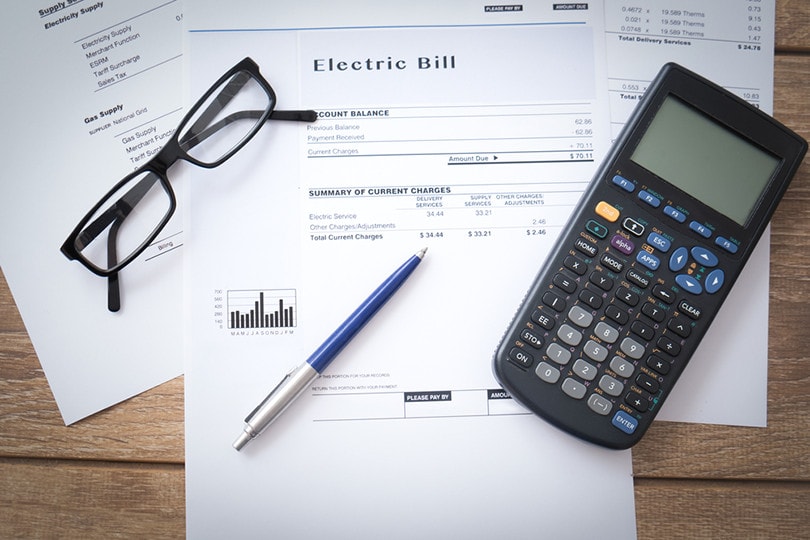
Electricity bills are one of the highest monthly costs that homeowners have to bear. The prevalence of technology, from smartphones to smart homes to simple washing machines, has caused electricity usage to continue to rise. If you are looking to save monthly cash on your power bill, there are some tips that you can implement to try and get those bills down. In many cases, the biggest sources of your electricity usage are in areas that you don’t think about.
Here are pro tips to help you save money on your monthly electricity bill that targets all phases of your power usage.
The 15 Tips for Saving Money on Your Electricity Bill
HVAC Tips
Air conditioners and HVAC systems are a massive source of energy usage inside the home. By helping your air conditioner to run more efficiently and less frequently, you can really make a dent in your electricity bill. There are some simple things you can do to help your AC run less and use less power overall.
1. Seal Windows and Doors
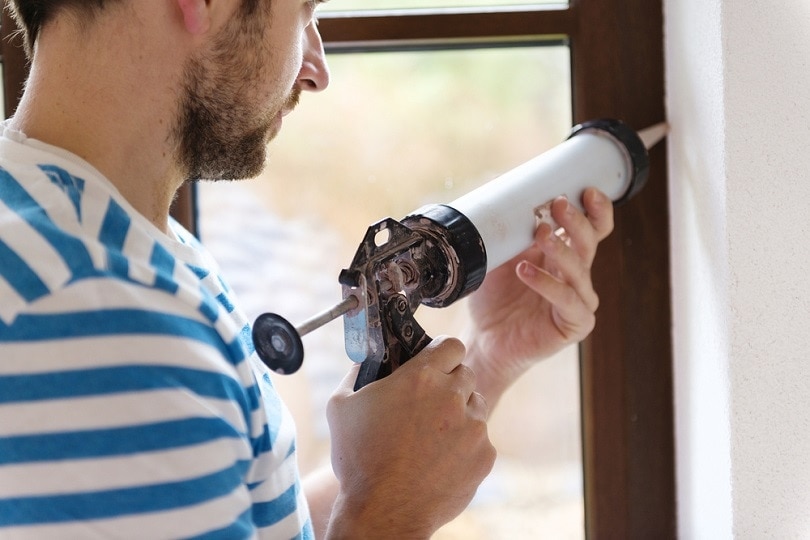
One simple way to ensure that your air conditioner is running at peak efficiency is to check that your windows and doors are properly sealed. If you can see daylight coming through gaps around your exterior doors or find that windows are getting damp or drafty, you could have an issue with your seals. Doors can often be sealed with adhesive foam or weather stripping to keep your cool air inside. Windows can be sealed with caulk or window tape. In most cases, these small projects will not cost much in the short term but can save you an appreciable amount month over month.
2. Change Your Air Filter Regularly
Another easy solution to help your air conditioner use less power is to make sure you are regularly changing your air filter. Every AC system has an indoor air filter that helps collect dust, dirt, pollen, and allergens. If you let your filter become dirty and clogged, your AC will have to work much harder to circulate the air through your home. If the filter is clogged up, the air in your home will not be able to be effectively pulled through your HVAC system. The harder your AC has to work, the more power it will use. Air filters should be changed every couple of months for the best results.
3. Turn Up Your Thermostat
One solution that many people are opposed to is simply turning up the thermostat. If you are worried about your house feeling too hot in the summer or too cold in the winter, simply change your thermostat by a degree at a time. A few degrees might sound like a lot to do all at once, but if you do it gradually, you will acclimate to your new temperature over the course of a few weeks. A higher thermostat will result in your AC running less frequently, which will save you money on your monthly bill.
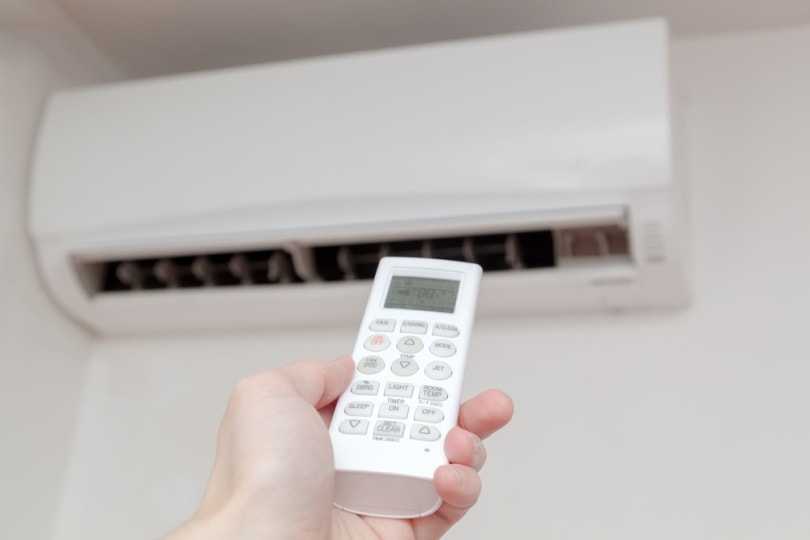
4. Use a Programmable Thermostat
Programmable thermostats can save you hundreds of dollars over their lifetimes. A programmable thermostat allows you to have the house be warmer during the day when you are out and about or at work and will only cool itself to a more comfortable level during the times that you are home most often. Having your thermostat raise itself by a few degrees during the day and only cooling itself during the evening hours can save a lot of money on electricity over the course of a year. Many modern programmable thermostats also have features that allow you to monitor the temperature from your phone and make adjustments on the fly.
5. Clean Your Vents and Ducts
If you have changed your air filter and are still running into issues with your AC running too often or dirtying the clean filter too quickly, you might want to consider having someone come out and clean your ductwork. Air ducts can accumulate clumps of dirt and dust over time which will impede the airflow in your HVAC system. Anything that impedes the airflow will cause your system to work harder and use more electricity than a clean system. Cleaning the air ducts will keep your air filters cleaner for longer and will help your AC run more efficiently.
Water Usage Tips
Water heaters are one of the largest sources of electricity usage in a residential home. Most people don’t think about their electricity bill when they are taking a long hot shower, but the amount of hot water you use can drastically affect your power bill. Cutting down on water usage will help cut down on the amount of hot water you use and bring down your power bill. Homes that get their water from a well will also save money by not running their well pump as often.
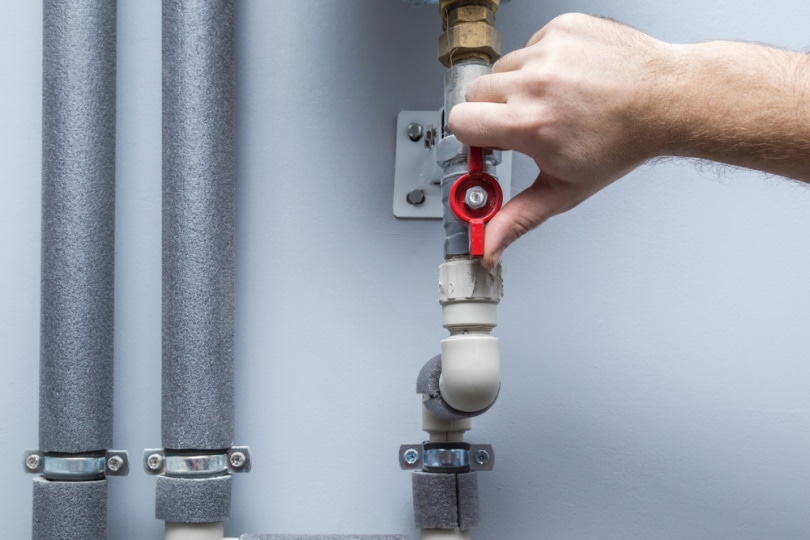
6. Upgrade to An Energy Efficient Water Heater
Since water heaters are one of the largest sources of electricity used in a typical home, upgrading your heater to a more energy efficient model can make a real impact on your monthly bill. There are a variety of different types of efficient water heaters that can help save you money. Look for water heaters with energy star ratings and try to choose a heater that has the best power ratings.
Do not get an oversized water heater that will heat more water than you typically use because that will waste power and money. You can also look into getting a tankless water heater. Tankless water heaters only heat water as it runs through the system, which can be more efficient in the long run, but it takes longer to heat water. Using less electricity to heat your water can save you a bundle on your annual power bills.
7. Switch to More Efficient Shower Heads
Another way you can save money on your electric bill is by switching to more efficient shower heads. Changing a shower head is as easy as unscrewing the old one and screwing on a new one. Shower heads that use less water will save you money by reducing the amount of water used per shower. Less hot water usage in the shower means less money spent on electricity overall. Look for low flow shower heads that decrease water usage. Today, design technology has made it, so you still get a powerful and comfortable stream without using too much hot water.
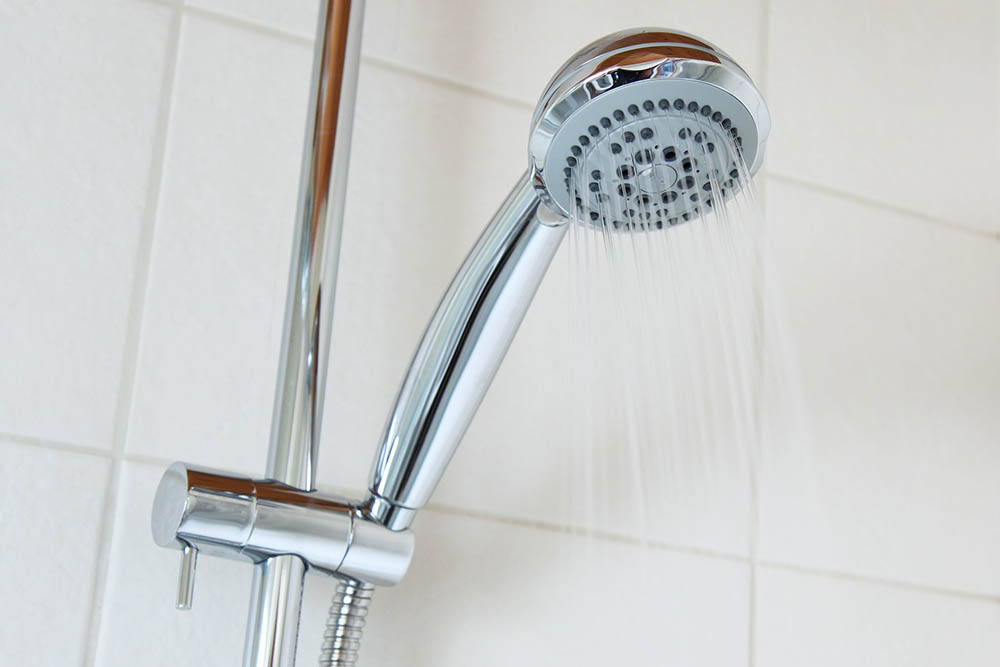
8. Take Shorter Showers
In addition to switching out your old shower head for a more efficient one, you can also take shorter showers. Shorter showers have been a tried-and-true way to save water and power for decades. The longer your shower, the more water your water heater needs to heat. The more hot water produced, the more electricity used. If you can reduce the length of your showers by just five minutes a day, you can start seeing small but cumulative savings on your monthly electricity bill. Taking shorter showers in combination with a low flow shower head can save you even more over a year.
9. Use Your Dishwater More
Some people think that dishwashers use more water and power than hand washing, but that is not necessarily the case. The most efficient way to wash your dishes is to run a full dishwasher load once a day. Running the dishwasher once as opposed to continuously washing dishes piecemeal will save you on water and power. You can also upgrade to an energy-efficient dishwasher for even more savings. Do not run the dishwasher unless it is full and try not to let your sink run hot water continuously while you are cleaning.
Sinks use a surprising amount of water when they are running, with an average flow rate of nearly two gallons per minute. For comparison, an energy star dishwasher only uses four gallons of water per cycle. That means that one dishwasher cycle only equates to about three minutes of sink usage. If you spend ten minutes washing dishes, that is already twenty gallons of water down the drain and five times as much water as the dishwasher consumes.
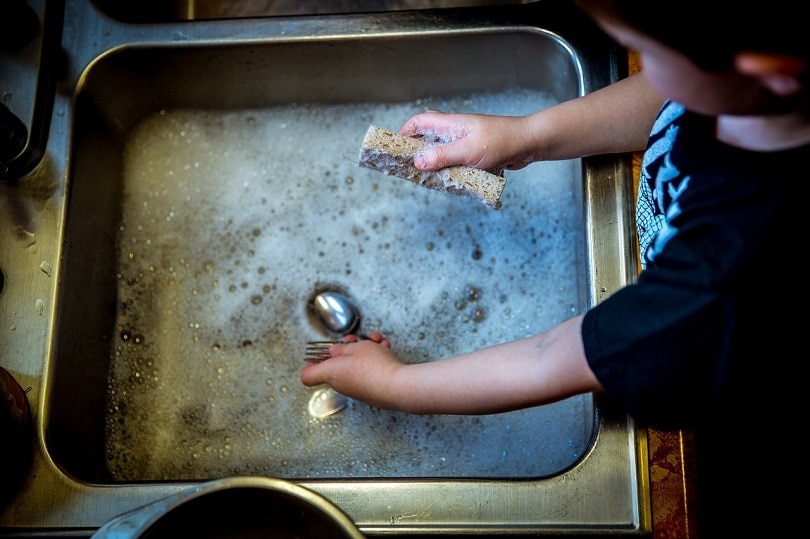
10. Don’t Wash Clothes in Hot Water
Washing your laundry in cold water can save you a boatload on your annual electricity bills. Washing machines can use a lot of water, and if you are running them on hot, that is gallons of hot water that your heater needs to warm. Cold water uses much less electricity and still cleans just as effectively as hot water. Even if you don’t want to run all of your loads on cold, reducing your hot water usage by half can save you a lot of money over the course of a year. Just turn the dial from hot to cold on your washer, and you are done.
11. Fix Any Leaks or Drips
Leaks or drips can increase your power bill gradually. Even if you do not think the problem is serious, leaks can cause your utility bills to increase without you realizing it. A drip from a hot water line can cause your water heater to run continuously, which will greatly increase your power usage. Drips from a cold-water line can cause a pump to also run continuously, which can affect your power bills. Leaks also contribute to higher-than-average water bills in areas where people are charged per gallon for water usage. Even if you think you can put off fixing a small leak, every drop of water being wasted is money out of your pocket.
General Power Tips
12. Turn Off Lights When You Are Not Using Them
Some people’s parents would yell at them about leaving the lights on. This might have felt arbitrary and grumpy when you were a child, but they were concerned for a reason. Leaving the lights on continuously adds money to your electricity bill. While lights do not use a lot of power, leaving them on causes your meter to run, subsequently adding to your bills. When you leave the house, get into the habit of turning off all of the lights. Do not leave outdoor lights on overnight unless you need them. Try to swap security lights for motion-activated variants to reduce electricity usage. Keeping the lights off can also keep your electricity bills low.

13. Look for and Eliminate Energy Vampires
Anything that is plugged in has the potential to use electricity. The average home is filled with so-called energy vampires that are slowly using electricity without giving you any appreciable benefits. Anything with an LED display or appliances that randomly beep even when you are not using them is contributing to overall power consumption.
Common energy vampires include cable boxes, video game consoles, unused chargers, coffee makers, and anything with a clock or light that is continuously on. These devices might seem harmless at first glance, but according to some studies, energy vampires can account for as much as 20% of your monthly electricity bill. You can control energy vampire devices better by using power strips that can be turned off with the flip of a switch or by unplugging devices that you rarely use, like an alarm clock in a guest bedroom.
14. Switch to More Efficient Light Bulbs
Even if you decide to turn your lights off more often, lights are still a major source of electricity usage. You can’t, after all, leave your lights off all night. You can swap out your old inefficient light bulbs with newer LED or energy efficient models that are designed to use much less electricity per hour than old lightbulbs. Swapping out all of the bulbs in your home won’t cost very much money and can save you a lot over the thousands of hours that your lights are on throughout the year.

15. Participate in An Energy Audit
Many power companies offer energy audits to their customers. You can sign up for an energy audit where your power company will compile data about your electricity usage. They will tell you what types of appliances are using the most power, your peak hours for power consumption, and fluctuations in your bill.
You can then use this information to craft a strategy to try and lower your bill. If you have high energy usage when you are not home, you might want to consider lowering your thermostat. If you are being dinged for water heating, you might want to invest in a better water heater. Energy audits give you the tools to choose strategies that will be most efficient for your individual home.
Conclusion
These fifteen tips can save you noticeable amounts of money on your electricity bills over time. Some of these tips will work better for some people than others. If you can implement most or all of these tips, you can expect to potentially save hundreds of dollars over the course of a year, depending on your overall usage and your electricity prices. Doing small things throughout the year can help reduce your energy consumption overall, which is good for your wallet and good for the planet.
See also:
Featured Image Credit: tommaso79, Shutterstock
Contents



